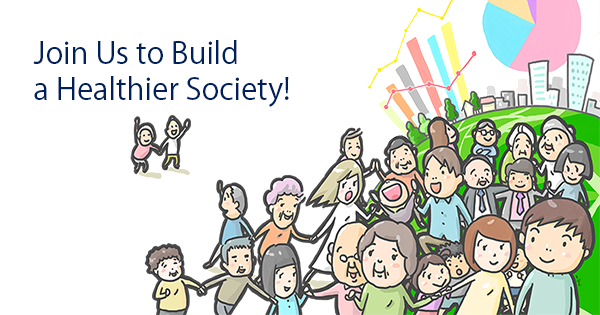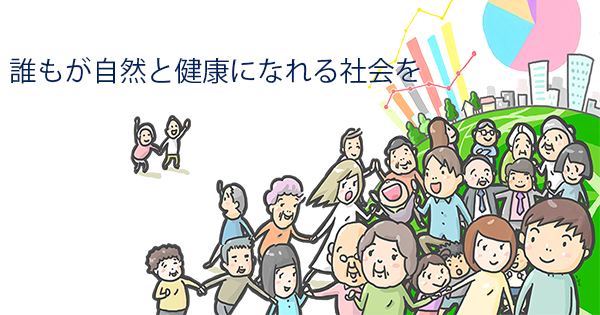Doctoral student Nagata and Assistant Professor Sato’s paper has been published in Preventive Medicine.
The Social Epidemiology Department, together with Hakuhodo DY Holdings Inc., has demonstrated in a study of metabolic syndrome that people who participated in the new workplace health promotion program “Checkup championship” improved their health checkup results compared to those who did not participate.
” Checkup championship” is a health program developed by Hakuhodo DY Holdings Inc. that utilizes several elements of behavioral science, such as commitment, incentives, and gamification, and incorporates innovations to make it enjoyable.
The results showed that people who participated in an entertaining health program had improved metabolic syndrome-related test values compared to those who did not participate in the program. In addition, we observed greater reductions in weight, body mass index, waist circumference, and low-density lipoprotein cholesterol among participants who were with two or more risk factors for metabolic syndrome than other participants.
Our findings suggest that participation in a health promotion program that incorporates behavioral science elements may lead to improvement of metabolic syndrome and correction of health disparities in the workplace.
Nagata H., Sato K., Haseda M., Kobayashi Y., Kondo N. A novel behavioral science-based health checkup program and subsequent metabolic risk reductions in a workplace: Checkup championship. Preventive Medicine. 2022 Nov; 164:107271.
https://doi.org/10.1016/j.ypmed.2022.107271
Abstract
The effectiveness of general health checkups and lifestyle counseling has been questioned. This study examined whether a workplace health promotion program implemented during a health checkup was associated with metabolic syndrome-related indicators. Hakuhodo DY group, one of Japan’s largest advertising agencies, implemented a behavioral science-based program called “Checkup Championship” (Kenshin-sen in Japanese) in 2019, in which all employees could voluntarily participate. We studied 3697 employees (2818 men and 879 women, mean age: 40.7 years), consisting of 1509 program participants and 2188 non-participants. The characteristics of participants and non-participants were balanced using inverse probability weighting. We used their data from the health checkups in 2018 and 2019 together with other covariates and performed a difference-in-differences analysis using a linear mixed model. After program implementation, greater reductions were observed among participants compared with non-participants in weight (−0.66 kg, 95% confidence interval: −0.84 to −0.47), body mass index (−0.23 kg/m2, −0.29 to −0.16), waist circumference (−0.67 cm, −0.91 to −0.43), systolic blood pressure (−1.13 mmHg, −2.10 to −0.16), and diastolic blood pressure (−0.84 mmHg, −1.53 to −0.15). In addition, we observed greater reductions in weight, body mass index, waist circumference, and low-density lipoprotein cholesterol among participants who were with two or more risk factors for metabolic syndrome than other participants. We found that participation in a health checkup program based on behavioral science was associated with reduced metabolic syndrome-related indicators. There may be room for improvement in the effectiveness of general health checkups.
Click here for Hakuhodo DY Holdings Inc. news release.
Click here for more information about the “Checkup championship”
Click here for press release.


